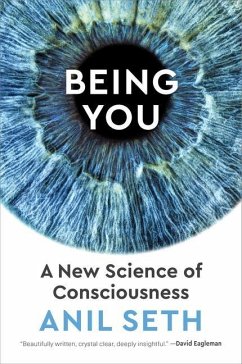
Versandkostenfrei!
Versandfertig in über 4 Wochen

PAYBACK Punkte
17 °P sammeln!





Besides being cruel and inhumane, torture does not work the way torturers assume it does. As Shane O'Mara's account of the neuroscience of suffering reveals, extreme stress creates profound problems for memory, mood, and thinking, and sufferers predictably produce information that is deeply unreliable, or even counterproductive and dangerous.
Shane O'Mara
Produktdetails
- Verlag: Harvard University Press
- Seitenzahl: 336
- Erscheinungstermin: November 2015
- Englisch
- Abmessung: 216mm x 146mm x 30mm
- Gewicht: 496g
- ISBN-13: 9780674743908
- ISBN-10: 0674743903
- Artikelnr.: 42574370
Herstellerkennzeichnung
Libri GmbH
Europaallee 1
36244 Bad Hersfeld
gpsr@libri.de
Offers a passionate and informative riposte to those who feel a 'war on terror' justifies barbarism.
-- Hayden Murphy The Guardian
Shane O'Mara's book is a rebuttal to the torture memos that came out a few years ago that justified 'enhanced interrogation' methods used in Guantanamo Bay and Northern Ireland. He takes an empirical approach to torture. From a scientific point of view, even before getting into the morality, it is just ineffective. The FBI said the best technique is to get clever interrogators who are good at forming bonds. The analogy he uses is that if you had a computer that had information you wanted you wouldn't hit it with a hammer because that would affect its recall. Humans work the same way.
-- Neil
-- Hayden Murphy The Guardian
Shane O'Mara's book is a rebuttal to the torture memos that came out a few years ago that justified 'enhanced interrogation' methods used in Guantanamo Bay and Northern Ireland. He takes an empirical approach to torture. From a scientific point of view, even before getting into the morality, it is just ineffective. The FBI said the best technique is to get clever interrogators who are good at forming bonds. The analogy he uses is that if you had a computer that had information you wanted you wouldn't hit it with a hammer because that would affect its recall. Humans work the same way.
-- Neil
Mehr anzeigen
Delamere Irish Examiner
A powerful, convincing and thought-provoking volume. O'Mara presents us with the overwhelming scientific evidence that torture simply does not work. What is more, it damages memory and is highly likely to produce flawed intelligence. Claims of the utility of torture are no more than 'cargo cult science.'...The significance of this book is difficult to overstate. Its conveyance of moral outrage as regards the practice of torture is unqualified and it delivers the evidence to repudiate all utilitarian justifications of the practice. It offers science-based pointers to manners of conducting interrogation that are both more effective and compliant with human rights standards. Furthermore, given
the questions surrounding the utility of all statement-related evidence, it supports the long-standing calls for more focus on such other evidentiary sources as forensics and surveillance. It has a great deal to say to contemporary policy-makers and for police and intelligence services, not least at a moment of enhanced attention to counter-terrorism. The book demonstrates the importance of science in the pursuit of human rights...O'Mara deserves some sort of prize for this work.
-- Michael O'Flaherty Irish Times
Instead of simply providing utilitarian arguments, [O'Mara] argues that there is no evidence from psychology or neuroscience for many of the specious justifications of torture as an information-gathering tool. Providing an abundance of gruesome detail, O'Mara marshals vast, useful information about the effects of such practices on the brain and the body.
-- Lasana T. Harris Nature
Does torture actually work? To be sure, it can compel people to confess to crimes and to repudiate their religious and political beliefs. But there is a world of difference between compelling someone to speak and compelling them to tell the truth... Yet the assumption underlying the ticking time bomb defense is that abusive questioning reliably causes people to reveal truthful information that they would otherwise refuse to disclose. Few scholars have scrutinized this assumption-and none with the rigor, depth, and clarity of Shane O'Mara in his excellent book, Why Torture Doesn't Work: The Neuroscience of Interrogation... Invoking the relevant science, he shows that torture undermines the very neurocognitive mechanisms requisite for recalling veridical information from memory.
-- Richard McNally Science
If the aim of the torturers is to extract information, they should read O'Mara's book and adopt gentler methods. CIA and the rest of you, read and note. Neuroscience says your methods don't work.
-- Steven Rose Times Higher Education
Why Torture Doesn't Work is a valuable book. O'Mara builds his case like a prosecutor, citing scientific studies and relentlessly poking holes in absurdities and inconsistencies in documents such as the 'Torture Memos.' Whether science matters to those who defend torture is another matter, as O'Mara knows: their motivation is often punitive, not practical. But once torture is imposed, the consequences, he says, are that it will be 'ineffective, pointless, morally appalling, and unpredictable in its outcomes.'
-- Carl Elliott New Scientist
Takes a scientific look at how the brain operates-or doesn't-under stress, and points to more humane ways of getting information.
-- Claire O'Connell Irish Times
O'Mara recognizes that there are no clear, consistently successfully approaches to getting reliable information from captives. He makes a compelling case, however, that our current naïve intuitions and macho methods, including conducting interrogations in English to show who is in charge, as well as torture, are counterproductive. And that the training and experience of interrogators currently employed by the CIA is woefully inadequate.
-- Glenn C. Altschuler Psychology Today
A catalog of the scientific evidence of how torture is at best ineffective, usually counterproductive, and always inhumane. In his exhaustive examination of the psychological literature on human (and animal) stress responses, O'Mara combs through numerous studies demonstrating how those stress responses are related to memory retrieval and communication, which are the stated goals of the U.S. military's 'enhanced interrogation techniques.' The author's main argument-that we could argue forever about the ethics of torture, but the point is moot if the techniques don't even work to solicit the information sought-is confirmed over and over as he works through experiments on the effects of sleep deprivation, pain, drowning, heating, cooling, sensory deprivation, and more. The experiments range from the well-known obedience experiments of Stanley Milgram to lesser-known studies that measured the cognitive effects of changes in core body temperature. O'Mara leaves no stone unturned as he meticulously details the procedures and outcomes of each experiment... Everything you never wanted to know-but probably should-about interrogation techniques and outcomes.
-- Kirkus Reviews
An authoritative analysis.
-- Antoinette Brinkman Library Journal
O'Mara has written a sober, convincing argument that torture is practically worthless and morally disgraceful.
-- Publishers Weekly
With accurate and compelling neuroscience, this book will be valuable to individuals outside the neuroscience world-in politics, in the military-who should know the scientific basis of torture as they make and execute policy in this area.
-- Howard Eichenbaum, Boston University
One of the most powerful arguments one can make against a practice is that it is self-defeating, given its own goals. This is a highly unusual book on torture-terrifically interesting.
-- Henry Shue, Merton College, University of Oxford
In a meticulously researched book that reinforces the legal and ethical arguments against torture, Shane O'Mara focuses on its effects on human physiology...As O'Mara shows, torture techniques are mentally debilitating, affecting memory as well as mood, and thereby compromise the capacity of victims to form and deliver a reliable account of any information that they may be withholding. Not only is torture morally deplorable, therefore, but its outcome is also entirely unpredictable...O'Mara capably translates the experimental evidence into accessible language for the general reader.
-- Giovanni Frazzetto Financial Times
Fascinating...Why Torture Doesn't Work is the empirical case against torture, a reading of scientific research which concludes that torture is a poor method of extracting information, and that the people who argued for it and used it had no idea what they were doing...The message of science, according to O'Mara, is unambiguous: torture makes it harder to obtain useful information, not easier...O'Mara deserves a lot of praise for writing a convincing and moral book.
-- Greg Waldmann Open Letters Monthly
The book takes readers on an extended tour of the brain and the way it functions under the 'chronic, severe, and extreme stressor states' produced by forms of torture such as starvation, thirst, sleep deprivation, and waterboarding. O'Mara looks at the scientific literature examining the effects of these grim methods and determines that information obtained using them is inherently suspect...The last refuge in the defense of torture has always been an appeal to elevate pragmatism and security over ethics and the law in the face of a 'ticking time bomb.' O'Mara's book reveals the hollowness of that argument.
-- G. John Ikenberry Foreign Affairs
O'Mara marshals a large amount of scientific literature to make his point.
-- Rupert Stone Newsweek
O'Mara shows that the processes of enhanced interrogation do indeed create such stressful states-interestingly, both in the interrogated person and in the interrogator-that it is enormously destructive not only to the person but to the information; and not only immediately but in the longer term... [The book's] greatest strength, to me, is the rigor of its evident deductivism and the way this is demonstrated, which seems to act almost as a catechism against those who, with Vice President Dick Cheney, would embrace 'the dark side' rather blithely... [It] provide[s] key documents testifying to the assumptions of our time about what constitutes a human being.
-- Rebecca Lemov Times Literary Supplement
A powerful, convincing and thought-provoking volume. O'Mara presents us with the overwhelming scientific evidence that torture simply does not work. What is more, it damages memory and is highly likely to produce flawed intelligence. Claims of the utility of torture are no more than 'cargo cult science.'...The significance of this book is difficult to overstate. Its conveyance of moral outrage as regards the practice of torture is unqualified and it delivers the evidence to repudiate all utilitarian justifications of the practice. It offers science-based pointers to manners of conducting interrogation that are both more effective and compliant with human rights standards. Furthermore, given
the questions surrounding the utility of all statement-related evidence, it supports the long-standing calls for more focus on such other evidentiary sources as forensics and surveillance. It has a great deal to say to contemporary policy-makers and for police and intelligence services, not least at a moment of enhanced attention to counter-terrorism. The book demonstrates the importance of science in the pursuit of human rights...O'Mara deserves some sort of prize for this work.
-- Michael O'Flaherty Irish Times
Instead of simply providing utilitarian arguments, [O'Mara] argues that there is no evidence from psychology or neuroscience for many of the specious justifications of torture as an information-gathering tool. Providing an abundance of gruesome detail, O'Mara marshals vast, useful information about the effects of such practices on the brain and the body.
-- Lasana T. Harris Nature
Does torture actually work? To be sure, it can compel people to confess to crimes and to repudiate their religious and political beliefs. But there is a world of difference between compelling someone to speak and compelling them to tell the truth... Yet the assumption underlying the ticking time bomb defense is that abusive questioning reliably causes people to reveal truthful information that they would otherwise refuse to disclose. Few scholars have scrutinized this assumption-and none with the rigor, depth, and clarity of Shane O'Mara in his excellent book, Why Torture Doesn't Work: The Neuroscience of Interrogation... Invoking the relevant science, he shows that torture undermines the very neurocognitive mechanisms requisite for recalling veridical information from memory.
-- Richard McNally Science
If the aim of the torturers is to extract information, they should read O'Mara's book and adopt gentler methods. CIA and the rest of you, read and note. Neuroscience says your methods don't work.
-- Steven Rose Times Higher Education
Why Torture Doesn't Work is a valuable book. O'Mara builds his case like a prosecutor, citing scientific studies and relentlessly poking holes in absurdities and inconsistencies in documents such as the 'Torture Memos.' Whether science matters to those who defend torture is another matter, as O'Mara knows: their motivation is often punitive, not practical. But once torture is imposed, the consequences, he says, are that it will be 'ineffective, pointless, morally appalling, and unpredictable in its outcomes.'
-- Carl Elliott New Scientist
Takes a scientific look at how the brain operates-or doesn't-under stress, and points to more humane ways of getting information.
-- Claire O'Connell Irish Times
O'Mara recognizes that there are no clear, consistently successfully approaches to getting reliable information from captives. He makes a compelling case, however, that our current naïve intuitions and macho methods, including conducting interrogations in English to show who is in charge, as well as torture, are counterproductive. And that the training and experience of interrogators currently employed by the CIA is woefully inadequate.
-- Glenn C. Altschuler Psychology Today
A catalog of the scientific evidence of how torture is at best ineffective, usually counterproductive, and always inhumane. In his exhaustive examination of the psychological literature on human (and animal) stress responses, O'Mara combs through numerous studies demonstrating how those stress responses are related to memory retrieval and communication, which are the stated goals of the U.S. military's 'enhanced interrogation techniques.' The author's main argument-that we could argue forever about the ethics of torture, but the point is moot if the techniques don't even work to solicit the information sought-is confirmed over and over as he works through experiments on the effects of sleep deprivation, pain, drowning, heating, cooling, sensory deprivation, and more. The experiments range from the well-known obedience experiments of Stanley Milgram to lesser-known studies that measured the cognitive effects of changes in core body temperature. O'Mara leaves no stone unturned as he meticulously details the procedures and outcomes of each experiment... Everything you never wanted to know-but probably should-about interrogation techniques and outcomes.
-- Kirkus Reviews
An authoritative analysis.
-- Antoinette Brinkman Library Journal
O'Mara has written a sober, convincing argument that torture is practically worthless and morally disgraceful.
-- Publishers Weekly
With accurate and compelling neuroscience, this book will be valuable to individuals outside the neuroscience world-in politics, in the military-who should know the scientific basis of torture as they make and execute policy in this area.
-- Howard Eichenbaum, Boston University
One of the most powerful arguments one can make against a practice is that it is self-defeating, given its own goals. This is a highly unusual book on torture-terrifically interesting.
-- Henry Shue, Merton College, University of Oxford
In a meticulously researched book that reinforces the legal and ethical arguments against torture, Shane O'Mara focuses on its effects on human physiology...As O'Mara shows, torture techniques are mentally debilitating, affecting memory as well as mood, and thereby compromise the capacity of victims to form and deliver a reliable account of any information that they may be withholding. Not only is torture morally deplorable, therefore, but its outcome is also entirely unpredictable...O'Mara capably translates the experimental evidence into accessible language for the general reader.
-- Giovanni Frazzetto Financial Times
Fascinating...Why Torture Doesn't Work is the empirical case against torture, a reading of scientific research which concludes that torture is a poor method of extracting information, and that the people who argued for it and used it had no idea what they were doing...The message of science, according to O'Mara, is unambiguous: torture makes it harder to obtain useful information, not easier...O'Mara deserves a lot of praise for writing a convincing and moral book.
-- Greg Waldmann Open Letters Monthly
The book takes readers on an extended tour of the brain and the way it functions under the 'chronic, severe, and extreme stressor states' produced by forms of torture such as starvation, thirst, sleep deprivation, and waterboarding. O'Mara looks at the scientific literature examining the effects of these grim methods and determines that information obtained using them is inherently suspect...The last refuge in the defense of torture has always been an appeal to elevate pragmatism and security over ethics and the law in the face of a 'ticking time bomb.' O'Mara's book reveals the hollowness of that argument.
-- G. John Ikenberry Foreign Affairs
O'Mara marshals a large amount of scientific literature to make his point.
-- Rupert Stone Newsweek
O'Mara shows that the processes of enhanced interrogation do indeed create such stressful states-interestingly, both in the interrogated person and in the interrogator-that it is enormously destructive not only to the person but to the information; and not only immediately but in the longer term... [The book's] greatest strength, to me, is the rigor of its evident deductivism and the way this is demonstrated, which seems to act almost as a catechism against those who, with Vice President Dick Cheney, would embrace 'the dark side' rather blithely... [It] provide[s] key documents testifying to the assumptions of our time about what constitutes a human being.
-- Rebecca Lemov Times Literary Supplement
Schließen
Für dieses Produkt wurde noch keine Bewertung abgegeben. Wir würden uns sehr freuen, wenn du die erste Bewertung schreibst!
Eine Bewertung schreiben
Eine Bewertung schreiben
Andere Kunden interessierten sich für











